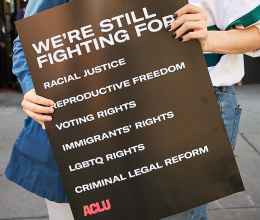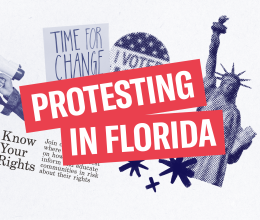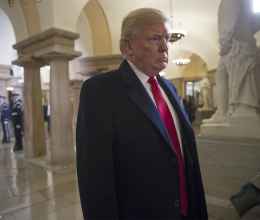
This op-ed was originally published in the South Florida Sun Sentinel.
It has now been three years since a wave of legislative attacks began to sweep American state legislatures — a wave that has never let up. These legislative proposals censor the teaching of race and slavery in American schools, classroom acknowledgement of LGBTQ+ identity, and the very foundations of academic independence in higher education.
This deluge of educational gag orders have sought not just to shape school curricula but to punish and intimidate educators. According to PEN America’s new analysis, there are now 36 educational gag orders in force across 21 states, affecting at least 1.4 million public school teachers and 100,000 public college and university faculty, in states that are collectively home to over a third of the U.S. population.
As a former president of a public college in Florida — the largest degree-granting institution in the nation — I have experienced these attacks firsthand. Last year, my state passed the two most draconian educational gag orders in the nation: a law banning all mention of homosexuality or gender identity in K-3 classrooms, and another restricting classroom instruction about race and gender in schools, colleges and even private institutions. This year, Florida doubled down, extending its ban on discussing gender identity up to 12th grade, and passing a new law that puts politicians and political appointees in charge of university mission statements and governance — all in an attempt to suppress diversity, equity and inclusion programming.
Make no mistake: This is censorship at work.
While millions of individual educators and students have felt the effects of these laws, the full scope of their impact is just starting to come into focus. In the past year, a number of national and state studies have documented their effects. These analyses, taken together, paint a clear picture of a crisis in American education. Educators across the country — from kindergarten teachers to college professors, music teachers to neuroscientists — report fearing government censorship for doing their jobs. At the same time, educational gag orders threaten to weaken public school systems and public universities, as educators leave, research grants are denied, and schools and universities struggle to recruit top talent.
The evidence shows that educational gag orders, which are often vaguely worded and erratically enforced, force teachers to self-censor, even beyond the wording of applicable laws. Teachers have reported feeling “nervous about teaching Frederick Douglass” and questioning whether to even teach about the Civil War and Reconstruction. Music teachers have wondered whether or how to teach about African American spirituals, jazz and the blues. A high school social science teacher described working “in an atmosphere of fear and paranoia.”
Here in Florida, home to some of the nation’s greatest public colleges and universities, faculty surveyed by the American Association of University Professors depict the chilling effect of censorship in action. “I live in fear of vindictive students and administrators who may not like my teaching and research.” “I constantly feel like I am one denunciation away from a derailed life and career.” “I’ve … received pressure from students to give them a grade that they want in exchange for not submitting a complaint about me.” Professors report struggling to find qualified candidates for open positions, or losing grant and collaboration opportunities because of fears of government crackdowns. Large majorities of faculty members now say they would not recommend Florida to prospective colleagues.
State-level restrictions on the teaching of racism and slavery have proved to be widely unpopular. A CBS News poll, for instance, found large majorities rejecting the banning of books based on discussions of race or criticisms of U.S. history. But instead of giving up, would-be censors have simply shifted focus. This year saw an explosion of new proposals to restrict how public schools teach about sexual orientation and gender identity. PEN America found that 38 such bills were proposed in the states this year.
In higher education, state officials have increasingly shifted from directly regulating what university faculty can teach to undermining the structures that protect academic freedom. Lawmakers have attacked tenure protections and independent accreditation agencies, banned courses from general education curricula, and attempted to eliminate entire departments or majors, all in attempts to exert control over higher education without directly threatening faculty speech.
Here in Florida, the cause to which I have dedicated my life and career faces a bleak future: intellectually impoverished universities, diminished educational opportunities for students, and a weakened democracy as those students become adult citizens without first learning about the world and the people around them. But I also have hope that engaged parents, teachers and community members can reverse this trend. Advocates in Ohio, North Dakota and Alabama have succeeded, at least for now, in halting educational gag orders, and educators in my home state have gone to court to protect their free speech rights.
In the coming year, I expect censorship advocates to pursue new, creative ways to exert control over public schools and universities. But they will — they must — be met with an increasing wave of resistance from those who know that free schools and colleges make a free people.
Eduardo J. Padrón is the former president of Miami-Dade College, a 2015 recipient of the Presidential Medal of Freedom, and a signatory of PEN America’s Champions of Higher Education Statement of Purpose.







